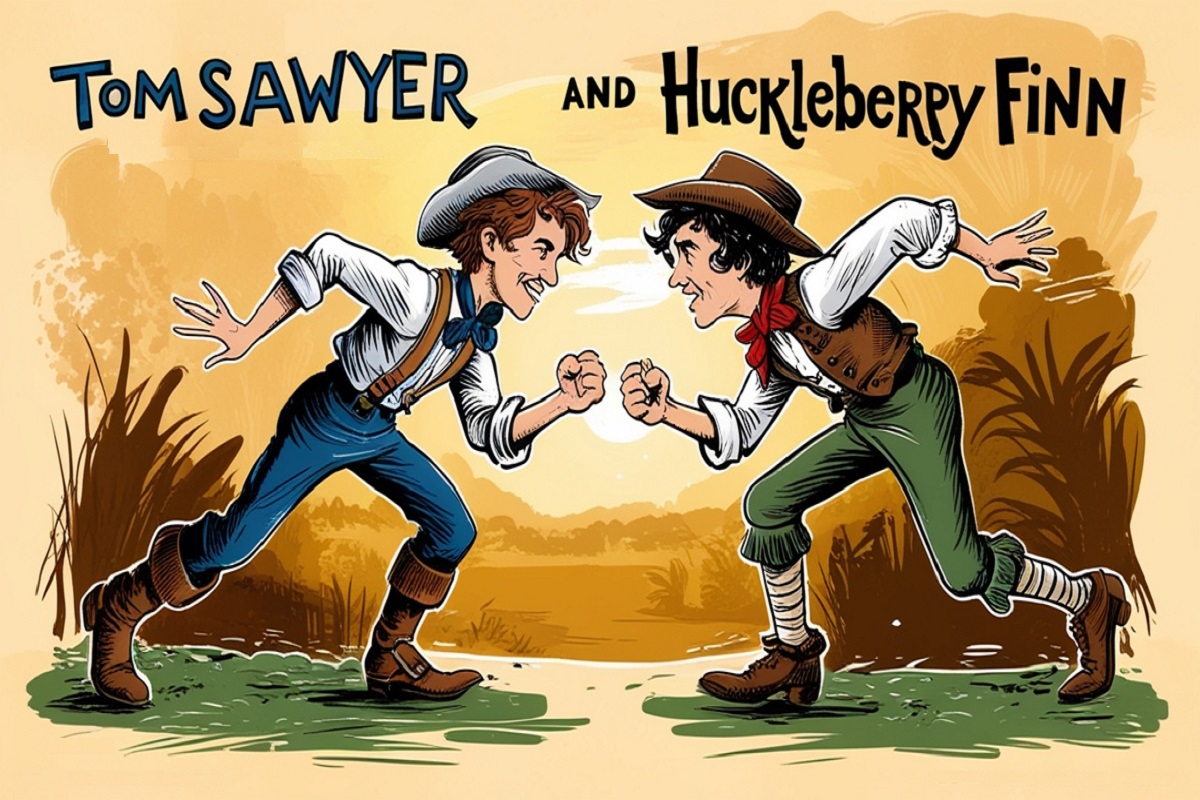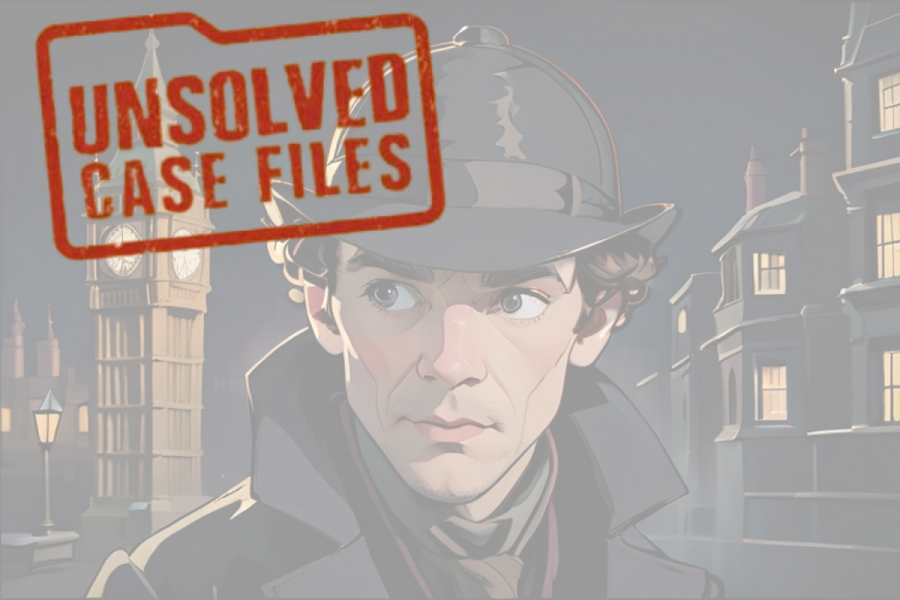Mark Twain’s Mississippi River serves as a backdrop for the journeys of two unforgettable characters: Tom Sawyer and Huckleberry Finn. While both boys are products of the same frontier society and share a love for adventure, they embark on distinct paths shaped by their backgrounds, moral compasses, and evolving understandings of the world. This essay delves into the battle of Tom Sawyer vs Huckleberry Finn.

Tom Sawyer vs Huckleberry Finn
Let us explore the differences and similarities of Tom Sawyer vs Huckleberry Finn. These literary foils illuminate the themes of freedom, societal expectations, and the awakening of conscience.
1. Childhood and Societal Constraints
Tom Sawyer is the mischievous protagonist of The Adventures of Tom Sawyer (1876). It embodies the carefree spirit of childhood. He was raised by his Aunt Polly, and he navigates the small town of St. Petersburg, Missouri. He has a sense of boundless energy and a penchant for rule-breaking. School holds little interest for him, and he finds solace in elaborate games with his friends, Joe Harper and Huckleberry Finn.
Huckleberry Finn is the central character of Adventures of Huckleberry Finn (1885). He occupies a vastly different position in society. He is an orphan and lives a neglected life with his abusive alcoholic father, Pap Finn. Huck embodies the marginalized outsider, ostracized by the respectable townsfolk and lacking the formal education Tom enjoys.
These contrasting realities influence the boys’ perspectives on authority.
- Tom fears his Aunt Polly’s punishments and desires the approval of the community.
- Huck views societal constraints with skepticism. He distrusts authority figures and cherishes his freedom, albeit a freedom born of societal neglect.
2. Worlds of Imagination and the Allure of Adventure
Both Tom and Huck find solace in imaginative worlds that offer escape from the confines of their daily lives.
Tom is inspired by adventure novels and transforms everyday experiences into grand quests. He and his friends form a band of pirates, engage in elaborate treasure hunts, and fantasize about running away from home.
Huck is deprived of a stable home and finds solace in the freedom of the Mississippi River.
Their shared love for adventure forms the basis for their unlikely friendship.
- With his boundless energy and theatrical flair, Tom often leads the way, concocting schemes that pique Huck’s adventurous spirit.
- In turn, Huck grounds Tom’s flights of fancy with his practical wisdom and street smarts.
3. Moral Dilemmas and the Development of Conscience
The boys, drawn to adventure, reveal significant differences in their responses to moral dilemmas.
Tom operates within a conventional framework of right and wrong, but his conscience often takes a backseat to his desire for fun. He witnesses Injun Joe’s murder but lies to protect himself. This shows a limited understanding of the gravity of his actions.
Huck’s moral development is a more complex journey. He was raised outside societal norms. So, he initially lacks a clear moral compass. He embodies the inherent good within an untamed soul. His relationship with Jim, the runaway slave, forces him to confront the established societal norms surrounding race. The more time he spends with Jim, the more Huck comes to see him as a friend and an individual deserving of freedom. This evolving understanding compels him to defy societal expectations and risk his own safety to help Jim escape.
4. The Weight of Conformity and the Power of Empathy
Tom’s journey is more one of conformity. He eventually testifies against Injun Joe and ensures justice is served. However, his actions are motivated by a desire to impress Becky Thatcher rather than a genuine moral awakening. He ultimately conforms to societal expectations and places him in contrast to Huck’s defiance.
Huck’s internal struggle between societal expectations and his growing empathy for Jim defines his moral awakening. He grapples with the hypocrisy of a society that condemns stealing while condoning slavery. His decision to help Jim signifies a personal rebellion against these ingrained social norms. His journey is about finding his own moral code, one that prioritizes compassion and human connection over rigid societal rules.
5. Growth and the Loss of Innocence
Both Tom and Huck experience a loss of innocence through their journeys.
Tom witnesses violence and deception firsthand, forcing him to acknowledge the darker aspects of the world.
Huck’s time with Jim exposes him to the cruelty and injustice of slavery. This shatters his naive belief in the established order.
Their adventures leave them forever changed, with a deeper understanding of themselves and the complexities of the world around them.
Conclusion: Twain’s Social Commentary
Through the battle of Tom Sawyer vs Huckleberry Finn, it is evident that Twain offers a subtle social commentary on the limitations of societal constructs.
Recommended: Realism vs Surrealism in Literature: A Comparative Study




